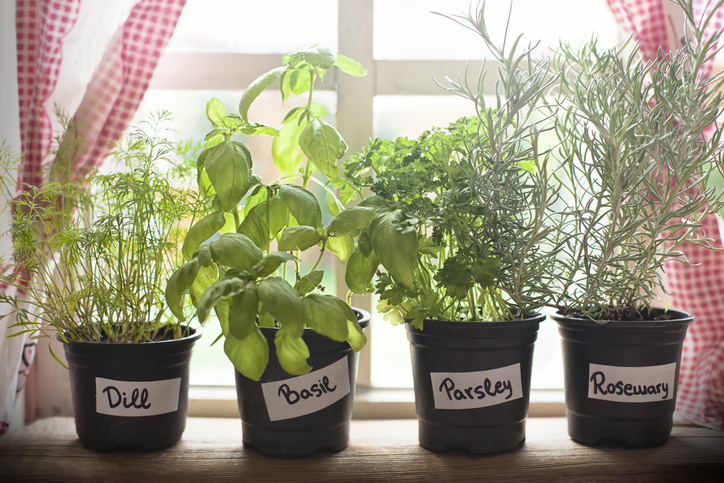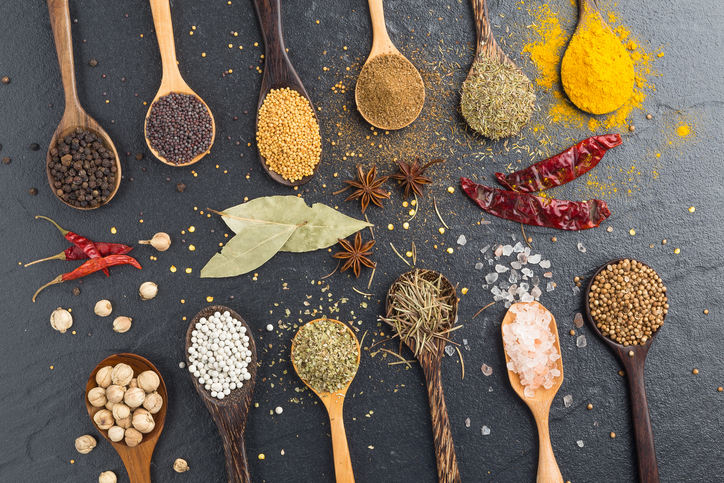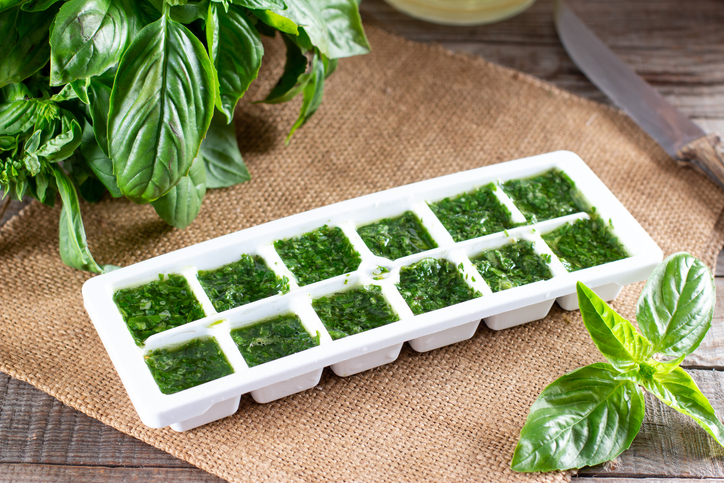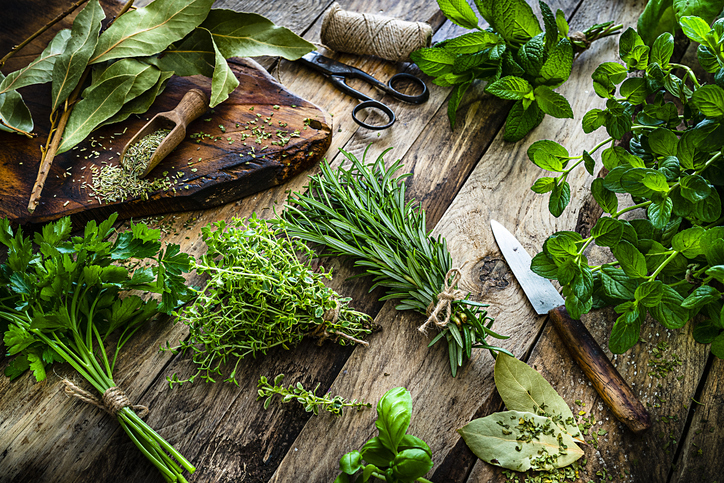Herbs and spices can easily take a meal from bland to beautiful with just a few teaspoons. While the spice aisle in the grocery store may seem overwhelming, learning just a little bit about herbs and spices can completely change some of your classic meals—and that might appeal to even the pickiest of eaters.

Fresh Herbs
Whether you grow them yourself in your backyard or container garden or if you purchase them from a grocery store or farmers’ market, fresh herbs can add wonderful flavor to a meal. Before cooking with them, make sure to first wash them. Rinse herbs under running water, wiping away any excess dirt or debris, and lay them out to dry. After they dry, you can remove the leaves from the stem and either add them to your food as whole leaves or chop and sprinkle them into the food. Fresh herbs are best added at the end of the meal. This maintains their fresh flavor without masking it from the other ingredients. Fresh herbs like basil are great on top of a cooked pizza or mixed into a cool summer salad, like this Cold Soba Noodle Salad.

Dried Herbs
In the summer months, fresh herbs are all around—in gardens, at the farmers’ market, and at grocery stores and food banks. However, they are often more expensive or difficult to care for. If that is true for you, feel free to use dried herbs and spices. They are available year-round at almost any grocery store and can still have a strong impact on your cooking. The general rule of thumb is that if a recipe calls for fresh herbs, you should use 1/3 of that amount in dried herbs. Additionally, dried herbs should be added toward the beginning of cooking. The heat extracts more flavors and gives the herb a chance to fully combine with all the other ingredients.

Frozen Herbs
If you are feeling ambitious, you can preserve fresh herbs on your own. One of the easiest ways to do so is through freezing. Wash and dry the fresh herbs as you would before cooking them. Then carefully remove the leaves from the stems, roughly chop them, and freeze them in water or oil. Measure out your herbs before you put them in the ice cube container so you know how much you put in each spot. Make sure you label them with the amounts as well. Then in winter, when fresh herbs are less accessible, grab your frozen herbs and add them to your recipe to add some fresh, fun flavors.
Nutrition
Herbs and spices can impact your health as well as the flavor of your dish. Many herbs have some micronutrients, such as vitamin E or C, but they are typically not significant enough to have a huge impact. While delicious, turmeric, basil, cilantro, and other herbs are not life-saving. However, for those who need to watch their salt intake, herbs and spices can be a great help. They can add the flavor that salt often brings without the risk of increasing sodium.
This summer, take a chance on some new flavors by trying fresh herbs you’ve never had before. Explore the Recipes page and find something with cilantro or fresh basil to experiment with exciting new flavors and ways of cooking.
Did you find this blog post helpful? Please click the heart button!




